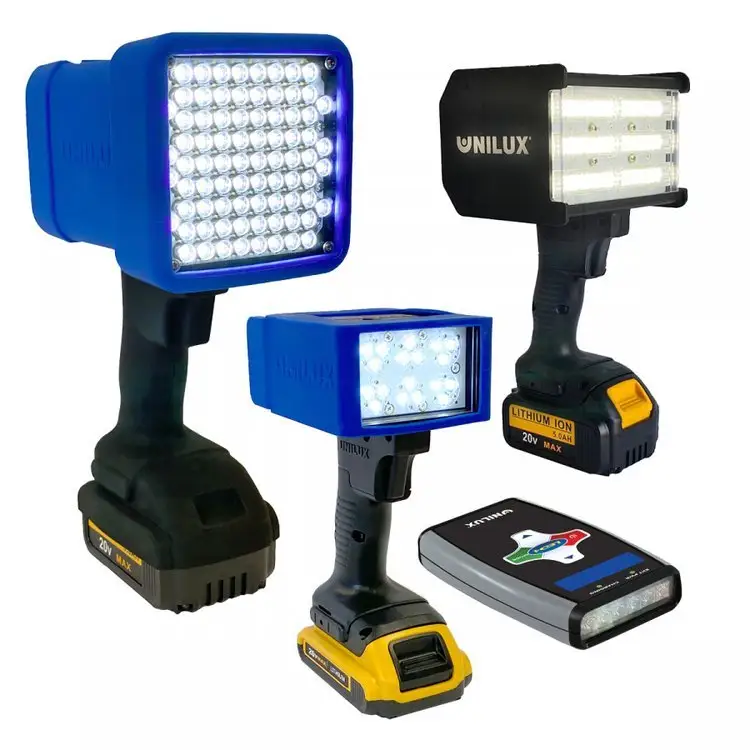荧光粉用于评估环境清洁的效果
紫外荧光粉和凝胶已在、教育和食品安全行业使用多年。各地的专业人士已向护士、感染预防专家、医生、房屋清洁人员、看门人、教师、学生、餐厅经理、食品处理人员、银行家和其他处理潜在传染性材料的人员教授了数百万堂卫生和感染控制课程。
荧光粉和荧光凝胶与紫外线灯(黑光)和有效的感染控制课程一起使用时有很多用途。
模拟细菌可以涂在手上进行手卫生训练(洗手前涂抹,然后检查遗漏的部位)。学生可以了解如何在洗手的同时彻底去除细菌。任何年龄或工作职位都可以使用乳液、凝胶或粉末进行洗手训练。
 荧光细菌对于环境清洁培训和验证也非常有效。房屋清洁人员和其他类型的清洁工受益于在黑光下看到荧光粉或凝胶的效果。
荧光细菌对于环境清洁培训和验证也非常有效。房屋清洁人员和其他类型的清洁工受益于在黑光下看到荧光粉或凝胶的效果。
将粉末或凝胶放在门把手、墙壁、手推车、床、地板、机器和其他具有高接触频率的区域。因为,经常接触的区域可能具有zui高的细菌浓度。以下是CDC 网站摘自《环境评估概念计划模型》附录 B:
http : //www.cdc.gov/HAI/toolkits/Appendices-Evaluating-Environ-Cleaning.html(使用链接查看完整的附录 B)
环境清洁评估方案 环境评估概念程序模型的附录
附录 B:评估环境卫生荧光标记的客观方法——荧光凝胶、粉末和乳液都是为了在房间清洁之前标记高接触物体而开发的。虽然粉末和乳液已被用作教育干预的一部分,但它们的明显可见性(乳液和粉末)、容易受到干扰(粉末)以及难以轻松去除(如果允许空气干燥的乳液)可能会限制它们在监控系统中使用,并且很少或没有发布用于此目的的经验。
相比之下,荧光凝胶在表面干燥透明,耐磨,并且有几项研究证明了该系统在客观评估清洁实践和量化教育干预对此类清洁的影响方面的准确性。 [ 4,5 ] 因为这些荧光标记物都旨在指示物理去除所施加的物质,有效但清洁效率较低的表面可能更有可能使用这些标记之一而不是一种培养技术被标记为不符合质量标准。
荧光细菌的应用可以在环境清洁人员知道测试的情况下进行,也可以秘密进行验证。在进行培训时,将模拟细菌应用于所需的表面。让凝胶干燥或粉末沉淀。用紫外线灯向学员展示细菌,以想象该区域在黑光下是如何被照亮的。指导一名或多名学员按照教给他们的方式清洁该区域。如果荧光材料是真正的细菌,则再次使用紫外线灯显示可能会传播疾病和疾病的遗漏点(细菌)。之后立即花时间讨论环境清洁原则和流程,以帮助您的员工获得更卫生的结果。强调他们在组织感染控制计划中的作用。
暗中应用荧光细菌时,选择一个区域,应用该细菌并将其输入到验证日志中。记录正在测试的区域可以让您记住检查的地点和时间。日志还应有助于跟踪在特定时间负责清洁该区域的工作人员。
清洁检查可以在有或没有工作人员在场的情况下进行。只需拿起紫外线灯即可查看该区域的清洁程度或未清洁程度。在许多情况下,细菌并没有被清除,而只是在整个区域传播。利用验证后的时间向工作人员说明正确的清洁程序。
Fluorescent powder and gel has been used in the medical, education and food safety industries for many years now. Professionals all around the world have taught millions of hygiene and infection control lessons to nurses, infection preventionists, doctors, house cleaning staff, janitors, teachers, students, restaurant managers, food handlers, bankers and others that handle potentially infectious materials.
Fluorescent powder and fluorescent gel (we distribute Glo Germ and Glitterbug) has many uses when used in conjunction with a UV lamp (black light) and an effective infection control lesson.
Simulation germs can be applied on hands for hand hygiene training (apply before hand washing and then check the spots that were missed). Students can find out how to fully get all the germs off while washing their hands. Hand washing training with the lotion, gel or powder can be used with any age or job position.
Fluorescent germs are very effective for environmental cleaning training and verification as well. House cleaning staff and other janitor types benefit from seeing the effects of the fluorescent powder or gel under a black light.
Place the powder or gel on door knobs, walls, carts, beds, floors, machines and other areas that have a high touch frequency. For, areas that are frequently touched will likely have the highest concentration of germs. The following is an excerpt from the CDC Website from Appendix B of the Conceptual Program Model for Environmental Evaluation:
http://www.cdc.gov/HAI/toolkits/Appendices-Evaluating-Environ-Cleaning.html
(use the link to see the full Appendix B)
Options for Evaluating Environmental Cleaning Appendices to the Conceptual Program Model for Environmental Evaluation
Appendix B: Objective Methods for Evaluating Environmental Hygiene
Fluorescent Markers – Fluorescent gel, powder, and lotion have all been developed for the purpose of marking high touch objects prior to room cleaning. While the powder and lotion have been used as part of educational interventions, their overt visibility (lotions and powder), ease with which they can be disturbed (powder), and difficulty with easy removal (lotion if allowed to air dry) may limit their use in a monitoring system and there is little or no published experience in their use for this purpose.
In contrast, the fluorescent gel dries transparent on surfaces, resists abrasion, and there are several studies demonstrating the accuracy of the system in objectively evaluating cleaning practice and quantifying the impact of educational interventions on such cleaning.[4,5] Because these fluorescent markers are all designed to indicate physical removal of an applied substance, surfaces that are effectively disinfected but less effectively cleaned may be more likely flagged as failing to meet a quality standard using one of these markers than one of the culture techniques.
The application of the fluorescent germs can be done with the environmental cleaning staff knowing about the test or it can be done in secret to verify. When conducting a training, apply the simulation germs across the desired surface. Let the gel dry or powder settle. Show the trainees the germs with the UV lamp to visualize how the area is lit under the black light. Instruct one or many trainees to clean the area the way it has been taught to them. Use the UV lamp once more to show the spots (germs) that were missed that could potentially spread illness and disease if the fluorescent materials were real germs. Use time immediately after to discuss environmental cleaning principles and processes that will help your staff achieve more sanitary results. Emphasize their role in the organization’s infection control plan.
When applying the fluorescent germs in secret, select an area, apply the germs and enter it in a verification log. Keeping a log of the areas being tested will allow you to remember where and when to check. The log should also help keep track of those staff members that are in charge of cleaning the area at a certain time.
The cleaning check can be done with or without the staff member present. Simply take the UV lamp to see how well the area was cleaned or not cleaned. In many instances, the germs are not cleaned up, but merely spread across the area. Use the time after the verification to instruct the staff member about correct cleaning procedures.








 添加微信咨询!
添加微信咨询!